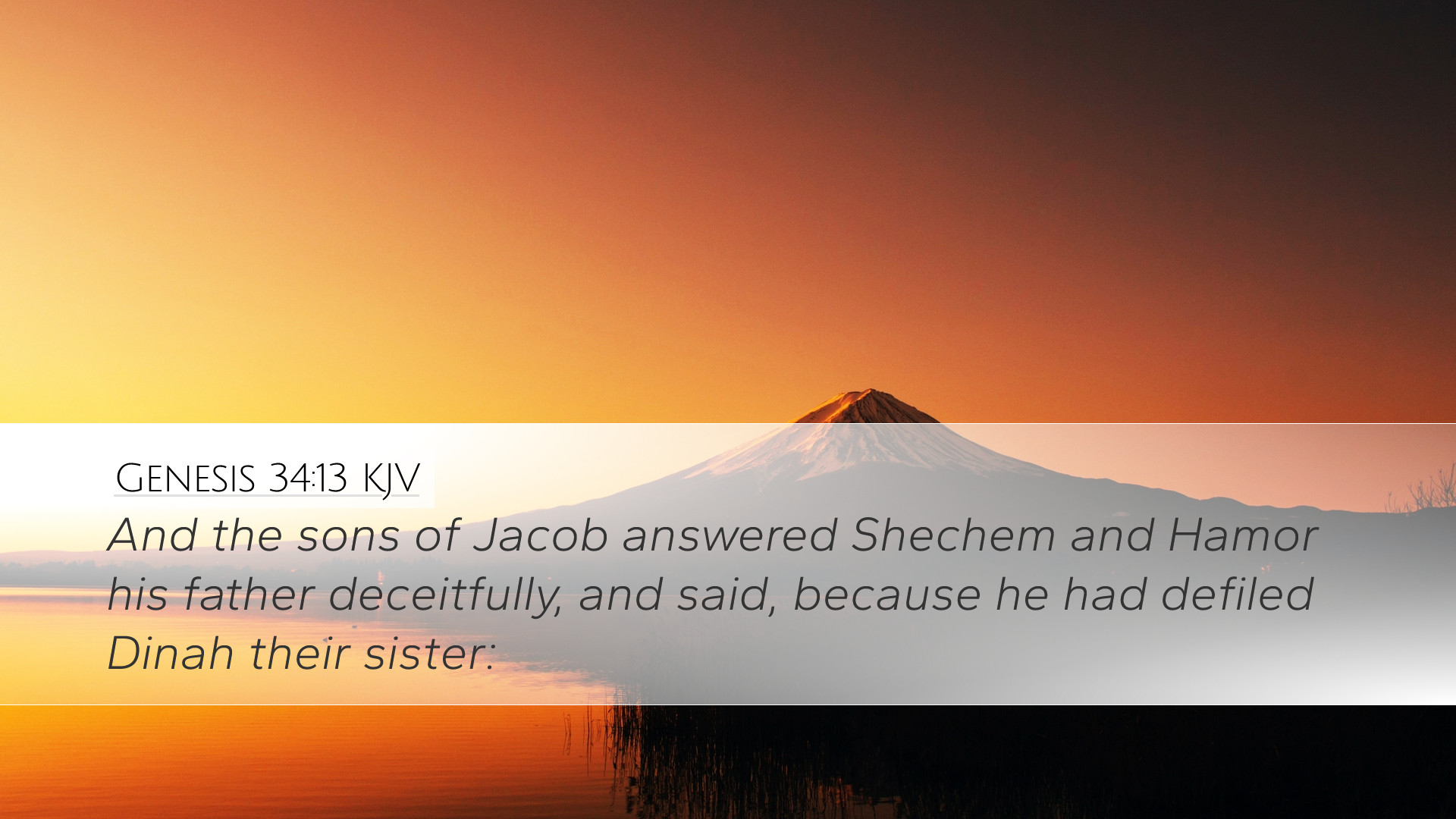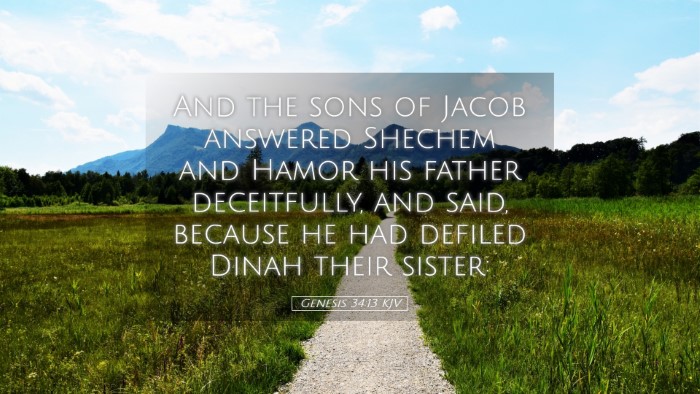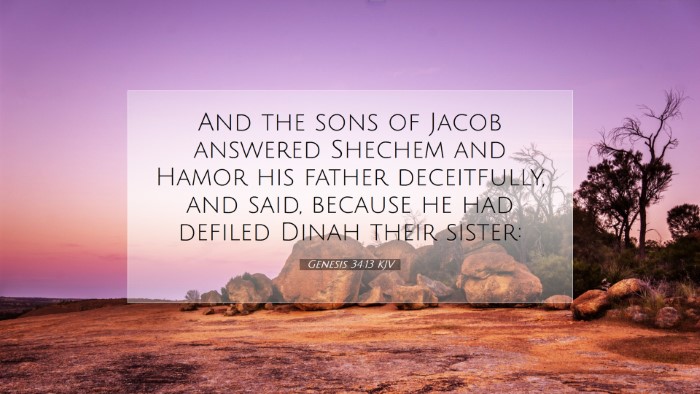Commentary on Genesis 34:13
Genesis 34:13 encapsulates the events surrounding the incident involving Dinah, the daughter of Jacob, and Shechem, the son of Hamor the Hivite. This verse states: “And the sons of Jacob answered Shechem and Hamor his father deceitfully, and said, ‘We cannot do this thing, to give our sister to one who is uncircumcised, for that would be a disgrace to us.’”
Contextual Background
To understand this verse, it is important to grasp the cultural and sociological nuances of the time. The practice of circumcision was deeply embedded in the Israelite tradition, symbolizing the covenant between God and His people. In this context, Jacob's sons' response to Shechem is not merely about family honor but also about the covenantal identity of their people. The tension between the Israelites and the Canaanites is underscored by this chapter.
Interpretative Insights
- Matthew Henry's Commentary: Henry provides an in-depth look into the motivations of Jacob's sons. He highlights their anger and the perceived dishonor of their sister's assault. The deceit practiced by the sons could be seen as a necessary tool to protect Dinah's dignity and their family's integrity.
- Albert Barnes: Barnes emphasizes the significance of circumcision as a sign of the Abrahamic covenant. He points out the irony in Shechem's proposal, illustrating that his desire for Dinah came from a place of passion rather than a spiritual commitment to the covenant. The avoidance of intermarriage with uncircumcised peoples was an important theme in Israelite law and tradition.
- Adam Clarke: Clarke discusses the social implications of this event, particularly the duty of brothers to protect their sister's honor. He draws attention to the deceitfulness of Jacob's sons, noting that while their actions were justified from one perspective, they ultimately led to greater violence and bloodshed. Clarke’s perspective encourages readers to ponder the complexity of moral decisions in a fallen world.
Key Themes and Applications
This verse presents several vital themes relevant for modern readers:
- The Importance of Family Honor: The intense response of Jacob's sons underscores the cultural importance placed on family and honor, which resonates with various societies today. It invites discussions on how contemporary communities navigate issues of personal and family dignity.
- Deception versus Integrity: The act of deceit by the sons raises ethical questions about truthfulness and manipulation. In leadership and pastoral roles, this passage serves as a crucial reminder about the means employed to achieve ends.
- The Significance of Covenant Identity: The verse reminds readers of the strength and importance of their spiritual and cultural identity. Such identity formation continues to challenge believers on how to engage with those outside their faith community.
Personal Reflection and Conclusion
As we meditate on Genesis 34:13, it is essential for pastors, students, theologians, and scholars to reflect on the broader implications of this narrative. How do we, as followers of Christ, maintain our integrity and covenant identity in a world that often values compromise? What mechanisms do we use to protect our community's honor without resorting to deception and violence? The lessons emerging from this passage offer not only historical insight but also a framework for ethical living in the contemporary landscape. The complex humanity shown by Jacob's sons presents a canvas upon which we can explore our moral landscapes, recognizing that faithfulness to God must inform our actions within and outside our communities.


